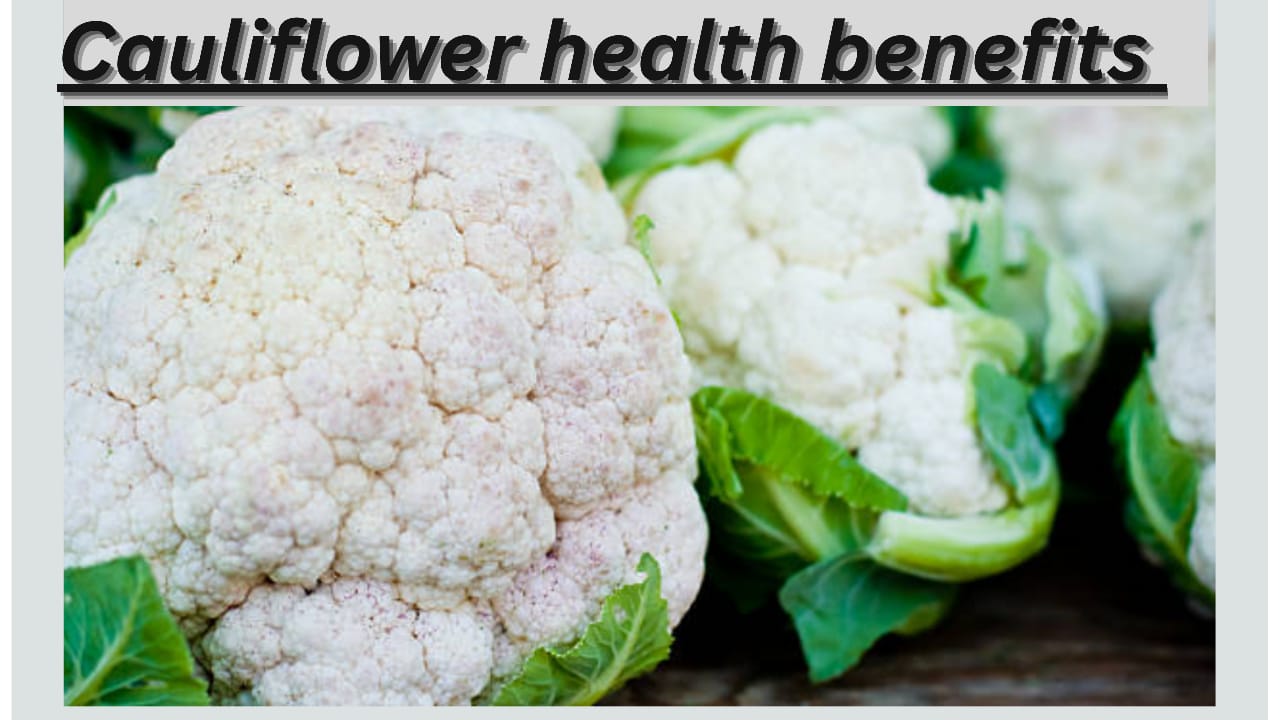Cauliflower is a winter vegetable that is usually available in the cold season. It is a vegetable that is loved by almost everyone because it is rich in antioxidants and fiber. Which keeps our body good such as improving our health and digestive power and even helps in weight control. In this world, everyone loves to eat vegetable food because it contains less carbohydrates and less fat which is very good for a person’s body. It is usually a vegetable.

Essential nutrients in cauliflower:
Vitamin C: Strengthens the immune system and improves skin health.
Vitamin K: Supports bone health and helps blood clotting.
Folate (vitamin B9): Very important for cell growth and development.
Potassium: Helps regulate blood pressure and muscle function.
Choline: Important for brain and liver health.
Cauliflower is a nutritional powerhouse packed with important micronutrients that contribute to overall well-being.
Rich in antioxidants:
These compounds, glucosinolates and isothiocyanates, help neutralize harmful free radicals and reduce inflammation. These antioxidants are linked to a reduced risk of chronic diseases, including certain cancers, heart disease, and diabetes.
In addition, cauliflower contains vitamin C and manganese, both of which strengthen a body’s natural defenses and slow the aging process by protecting cells from oxidative stress.
Supports Heart Health
The fiber, potassium, and antioxidants in cauliflower contribute to heart health. High fiber intake helps lower bad cholesterol (LDL) and increases healthy cholesterol (HDL). Meanwhile, potassium helps regulate blood pressure by balancing sodium levels.
The sulfur compounds found in cruciferous vegetables like cauliflower may help improve blood vessel function and reduce inflammation, two important factors in preventing heart disease.
Boosts Brain Function
Cauliflower is one of the best plant-based sources of choline, which is often overlooked but essential for brain development, memory, and mood regulation. Choline helps produce neurotransmitters that maintain communication between brain cells.
For pregnant women, adequate choline intake is especially important, as it supports fetal brain development and reduces the risk of birth defects.
Helps with digestion and detoxification
Cauliflower is high in fiber and water. It supports a healthy digestive system. Fiber increases bowel regularity, helps feed beneficial gut bacteria, and prevents constipation.
The glucosinolates in cauliflower help the liver rid itself of harmful substances, which helps the body eliminate toxins more efficiently. It is a great food to support the body’s natural cleansing processes.

Helps in weight loss:
Weight is a big problem in today’s world and everyone is worried about their weight. Similarly, cauliflower is a low-calorie food which is high in fiber and can keep a person full for a long time and help in keeping away unhealthy cravings. It works like a complete diet, which if followed according to the rules, reduces weight.
Helps control blood sugar:
Cauliflower has a low glycemic index, meaning it doesn’t spike blood sugar levels as quickly. Its fiber content slows down the digestion and absorption of sugar, making it beneficial for people with diabetes or those trying to prevent it.
Including cauliflower in your diet can help stabilize energy levels and reduce blood sugar levels after meals.
Cauliflower is a highly versatile and nutritious vegetable that is gaining popularity for its health benefits and culinary adaptations. Rich in vitamins, minerals, and antioxidants, it supports overall well-being and provides a low-calorie alternative to many starchy foods. It may be a common vegetable, but it has many functional and natural benefits that are much needed by the body.
